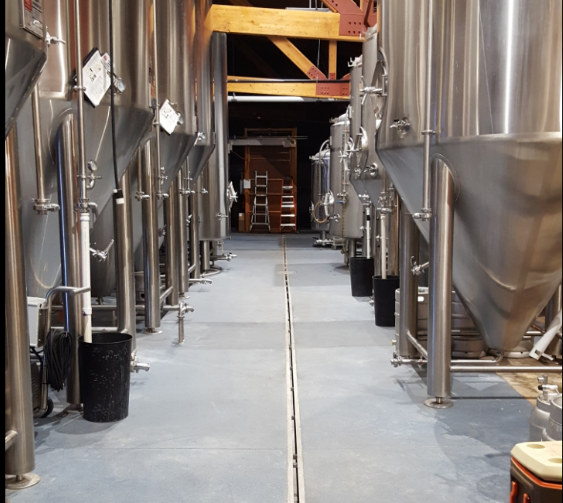
When you think about brewing, you think about a lot of things - how to get the taste of the beer just right, the creativity in trying new blends, the skill it takes to make a good ale. You may not necessarily think about drains, but you need to. Good drainage is vital in a business that deals with a lot of liquid. Here are five of the most common drainage-related issues involved in brewing.
Fruit Flies
Fruit flies are attracted to damp, organic materials. Drains in a brewery are a wealth of food for them, and if the drains are poorly planned or dirty, a serious fruit fly infestation is not far behind. They love rotting plant material, and runoff from a brewery is rich in such.
For controlling fruit flies, the first step is to keep your brewery drain clean. Don't have uncovered organic material available. This includes having well built, clean drains, because if a drainage system has places where tasty, stagnant water and material build up, it makes perfect fly nurseries.
You can set traps for flies that manage to grow despite your cleaning work. The easiest is a shot glass of cider vinegar with a couple drops of dish soap; flies are attracted to the vinegar, and the dish soap removes surface tension so when they land, they drown. There are also professionally made chemical and physical traps; however, it is best to plan and clean so that they don't have a chance to infest your brewery in the first place.
Yeast
Yeast is an integral part of the brewing process. It is what takes the mash and makes it beer. When finished with a batch of yeast, it may be tempting to wash the slurry down the drains. This causes a variety of problems. Besides yeast mats growing and potentially clogging your drains, and yeast being very attractive to flies and other pests, commercial brewers can be fined for improperly disposing of yeast. Simply washing away the quantities a brewer deals with can be a violation of the Clean Water Act.
Options for dealing with the remains of yeast include gathering and recycling it; properly processed slurry can be mixed with grains into animal feed. Yeast can also be composted or put into a biodigester rather than simply going down the drain. Both of these are potentially a source of profit for the brewer.
Hops and Other Solids Clogging the Drains
There are actually a lot of not-quite-liquid things that go down drains when brewing, and this can be an issue. Have you ever washed coffee grounds down the drain, only to get a nasty clog? The solids that are still suspended in brewery wastewater can do the same thing. Additionally, these can be food for a variety of pests that you don't want living in your drains.
Having some filtration to collect these before they go down the drain helps, and also decreases the pollution your brewery sends out into the environment. So does rinsing with lots of water, and regularly cleaning out the drains. A well-designed drainage system will help to decrease the likelihood of sediment having a chance to settle and clump together.
Cleaning the Drains
Drains in breweries need to be thoroughly cleaned on a regular schedule. You need to use appropriate cleaning chemicals for your drainage type, and you need to be in compliance with clean water regulations. The people doing the cleaning need to be using the right protective gear, including eye protection, rubber gloves, and either a protective apron or a full protective suit.
Cleaning out drains helps prevent problems from starting. It is not an insignificant task, and doing it well can take a lot of work. Having a well-designed and well-built drainage system will make cleaning a breeze.
Insufficient Floor Slope
In a well-designed brewery, the floors will slope to the drains so that any spilled liquid will flow into the drainage system and away. If you're not careful with your contractors and installers, you can end up with a floor that is not sloped properly toward the drain, resulting in standing liquid or worse; liquid flowing in the wrong direction.
A well-planned and implemented floor slope is an important part of the drainage system of any brewery.
Planning for proper drainage helps decrease the stress of running your business, makes it easier to keep your brewery clean, and helps you comply with regulations.
Not sure what to look for in a drain system? See article on things to consider when choosing a trench drain system.
Food Safe Drains contains several articles for food and beverage facilities researching the best types of drain systems for their applications.


